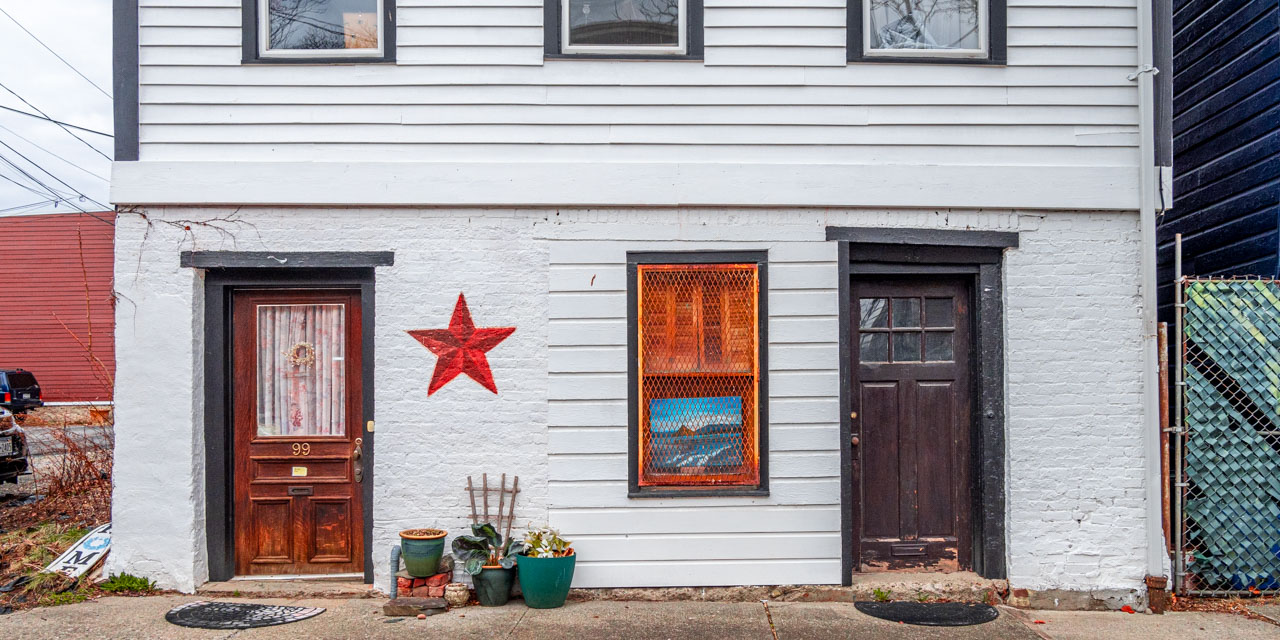Good morning, it’s Wednesday. We have reached the middle of the week already. Time sure does fly when you’re under siege.
In tumultuous times like these, people are in dire need of refuge. They need places to rest and recharge – literally and figuratively. I personally find sifting through the racks at Goodwill quite relaxing, but the mere concept of being faced with thousands upon thousands of pieces of clothing and needing to dig through them to find hidden gems gives my husband hives.
So, different strokes for different folks and all that. Some like shopping, while others prefer binge watching TV. Some seek the solace of the great outdoors, while others lose themselves in the anonymity of big crowds.
But I think we can probably all agree on the regenerative as well as utilitarian value of public libraries.
I have to confess that I am not a habitual library goer. This was not always the case. In fact, when I was a child, some of my fondest and earliest memories involve The Elting Memorial Library in my hometown of New Paltz, which, by the way has an EXCELLENT library fair – something you should put on the calendar and check out if you happen to find yourself in the area.
I spent a lot of time in the children’s room at this library. I took out a lot of books in my day. And even though I haven’t been back in many years, I feel like I could be brought to the place blindfolded and identify it upon walking in the door, simply by the smell alone. That slightly musty old book/historic building smell has a Proustian quality to it.
These days I don’t go to the library. I barely have time to read, and when I do, it’s often on my phone. There, I said it. So, sue me. BUT, I still have a soft spot for libraries and a deep appreciation for the role they play in society.
They are no longer merely musty, fusty receptacles of outdated dead-tree tomes, but rather community gathering spaces, information clearinghouses, and lenders of everything (depending on your branch and location) from movies and games to fishing poles, sporting equipment, and garden supplies. And, of course, they still have books – both physical and virtual.
Libraries, sadly, have become politicized, and librarians (some of them, anyway) warriors in the battle for First Amendment rights. Actually, quite frankly, the role of the librarian as a fighter against censorship, book bans, and other efforts to curtail free thought is actually nothing new, it dates back decades. (NOTE: don’t click on that last link unless you really want to go down a historic rabbit hole, which I think is worth it, but will take some time).
And things are likely to get worse before they get better, given the battle brewing over the Trump administration’s targeting of federal library funds as it seeks to slash spending in D.C.
Not all that long ago, libraries were deemed on the brink of extinction due to the rapid adoption of online, well, everything. But, thanks largely to the patronage of Gen Z and millennial users, libraries are not only surviving, but thriving – especially those that have expanded their missions and services and focused on digitizing their collections.
We are in the middle of National Library Week, which runs from April 6 through the 12th. Today, specifically, is National Library Outreach Day, formally National Bookmobile Day, which is dedicated to raising awareness about, and building appreciation for, the librarians who are dedicated to meeting their patrons where they are, keeping the love of reading and acquisition of knowledge alive.
Today’s forecast is every so slightly less dreary than the misery we’ve been treated to over the past several days. Skies will be mostly sunny, though it will still be on the chilly side, with temperatures topping out only in the mid 40s.
In the headlines…
President Donald Trump’s tariffs took effect just after midnight, hitting nearly all U.S. allies with punishing new levies, raising import taxes on Chinese goods to more than 100 percent and sending governments racing to negotiate reductions.
China has retaliated with its own levies, and European Union officials said they were drawing up plans to target American exports. That has heightened fears of an economically damaging trade war and a global recession.
Trump acknowledged yesterday that his tariffs had been “somewhat explosive.” But throughout the day he continued to defend his approach, saying that it was encouraging countries with what he calls “unfair” trade practices to offer concessions.
Trump revealed that the U.S. will soon announce a “major” tariff on pharmaceutical imports. Speaking to an event at the National Republican Congressional Committee, he said that the tariff will incentivize drug companies to move their operations to the U.S.
Domestic drug manufacturing has shrunk dramatically in recent decades. Most production of active pharmaceutical ingredients has moved to China and other countries, according to the Food and Drug Administration.
Many companies had been steadily reducing their reliance on China as a manufacturing hub since Trump’s first term, hoping to blunt the impact of punitive levies from the United States. Then his latest “reciprocal” tariffs came along.
The Trump administration has frozen more than $1 billion in funding for Cornell and $790 million for Northwestern amid civil rights investigations into both schools, two U.S. officials said.
The funding pause involves mostly grants from and contracts with the Departments of Agriculture, Defense, Education and Health and Human Services, according to the officials, who spoke on the condition of anonymity to discuss the unannounced decision.
The president of Cornell University had responded to Trump’s March warning letters to universities with a defiant op-ed in the New York Times, arguing that universities, and their students, could weather debates and protests over the war in Gaza.
”The money was frozen in connection with several ongoing, credible, and concerning Title VI investigations,” a Trump administration official said, referring to a statute that prohibits discrimination in programs and activities receiving federal funding.
The Trump administration said Tuesday it would pull funding from Princeton University over climate-related programs that go “against” the National Oceanic and Atmospheric Administration’s (NOAA) current program objectives.
A release from the Department of Commerce, which houses the NOAA program, highlighted three of the school’s research awards that clash with the administration’s policies.
Several top IRS officials, including the acting commissioner, are reportedly preparing to quit after the Trump administration pushed the agency to use its protected tax records to help homeland security officials deport immigrants.
The Supreme Court blocked a ruling from a federal judge in California that had ordered the Trump administration to rehire thousands of fired federal workers who had been on probationary status.
The court’s brief order said the nonprofit groups that had sued to challenge the dismissals had not suffered the sort of injury that gave them standing to sue.
Several reports confirmed Acting IRS Commissioner Melanie Krause, who was acting head of the agency since February, would be stepping down over the new data-sharing agreement.
Trump signed a series of executive orders bolstering coal plants and production. Coal is now defined as a “mineral,” allowing it to benefit from a previous executive order bolstering mining that used presidential wartime authorities to expedite production.
A federal judge ordered the White House to restore The Associated Press’s full access to Trump, finding that the effort to ban the outlet over objections to its coverage violated the First Amendment.
At least 98 people have been killed and more than 150 injured after a roof collapsed at a nightclub in the Dominican Republic’s capital Santo Domingo, officials have said.
A provincial governor and former Major League Baseball pitcher Octavio Dotel were among the victims. Dotel, 51, died on the way to hospital after being pulled from the debris.
Nelsy Cruz, the governor of Monte Cristi province and sister of seven-time Major League Baseball All-Star Nelson Cruz, was the first person to alert Dominican President Luis Abinader about the disaster. She later died at the hospital from her injuries.
At least 300 people were inside Jet Set nightclub when the roof collapsed around 1 a.m. during a performance of merengue artist Rubby Pérez and his orchestra. Pérez’s whereabouts were unknown last night amid fears he could be among those killed.
According to state Senate Majority Leader Andrea Stewart-Cousins, state budget negotiations have hit a “pause” as policy debates gum up progress, even if they are at the “beginning of the end.”
Hochul and Department of Corrections and Community Supervision (DOCCS) Commissioner Daniel F. Martuscello III have extended the authorization of additional overtime compensation at a rate of 2.5 times an employee’s regular rate of pay through May 9.
A New York City district attorney gave inaccurate testimony about one of the state’s most contentious political issues during a February legislative hearing, according to court documents recently reviewed by New York Focus.
Stony Brook University will receive $5 million over the next three years from New York State to reimagine its existing Department of Technology and Society in the College of Engineering and Applied Sciences (CEAS), Hochul announced.
Hochul wants to set the record straight – she has never used ranch dressing instead of blue cheese as a dip for her wings.
The Trump administration is sticking by its deadline for New York to end congestion pricing — despite an agreement with the MTA that could keep the toll cameras on until the fall.
US Department of Transportation spokesperson, in a post on an X account, lambasted reports that the feds and MTA officials agreed to keep the $9 tolls at least temporarily in place.
The federal immigration authorities will be allowed to open office space at the Rikers Island jail complex for criminal investigations, according to an executive order issued by Mayor Eric Adams’s administration.
Mayor Adams insisted that Trump is “someone that’s finally listening” to him on combating the city’s migrant crisis, citing it as an example of how he believes their warm relationship is benefiting the Big Apple.
“All those who are just saying ‘just fight him, resist, resist’ — I’m not part of the resist movement, I’m part of the produce movement,” Adams said during a press conference, where he traded out his suit and tie for a t-shirt that read “In God We Trust.”
While Adams vowed that the city will continue fighting for rescinded funding, he praised the Trump administration for doing what its predecessor would not – both in terms of securing the border and going after “dangerous gang members” among migrants.
Brooklyn residents voiced pressing issues at a community meeting with Adams at P.S. 109 last night.
The first week of New York City’s composting crackdown resulted in nearly 2,000 tickets to property owners who allegedly ignored a new mandate to separate organic waste from the rest of their building’s garbage.
The Federal Emergency Management Agency has terminated $188 million in grants to New York City to care for migrants, arguing that the money is being used to support illegal immigration.
The decision, announced in a letter sent to the city on April 1, comes nearly two months after FEMA removed $80 million from the city’s bank accounts that was also to be used to care for migrants.
A Brooklyn judge took the crime out of a bite yesterday, dismissing a felony case against a New York City councilwoman who had attacked a police officer during a protest against a proposed homeless shelter.
According to the office of Brooklyn’s district attorney, Eric Gonzalez, the charges were dropped after the council member, Susan Zhuang, completed a course in restorative justice under a diversion program that offered alternatives to traditional prosecution.
Zhuang yesterday introduced a City Council resolution that would, for the first time, recognize the history of Chinese-American railroad workers in New York City.
On whether she will someday run for mayor of New York City, NYPD Commissioner Jessica Tisch said: “I don’t see it,” though she did not dismiss the idea out of hand. “I am a public servant, not a politician.”
Thousands of working people in New York City now live in shelters, unable to afford apartments despite holding down jobs that pay them $50,000 or more.
Lawyers for the American Civil Liberties Union renewed their efforts to prevent the Trump administration from deporting Venezuelan migrants under a wartime powers act, asking a Manhattan judge to again block the White House from using the law.
Police and prosecutors are crediting a much-criticized gang database for helping indict 16 people allegedly responsible for half of the shootings in East Harlem last summer.
In East Harlem, a six-month gang war led to gunfire in playgrounds, buildings, courtyards and crowded streets, accounting for half the shootings in a single police precinct, law enforcement officials said.
The Roman Catholic Diocese of Albany may close up to one-third of its buildings, due to a “financial and maintenance crisis,” Bishop Edward B. Scharfenberger said in a letter sent to the community this week.
Bethlehem, Albany and East Greenbush were among the school districts in New York that canceled standardized tests yesterday because of a problem with the computer system used for the tests.
The attorney for the 26-year-old insurance executive who allegedly shot and killed his roommate with a BB gun on Sunday morning said his client is devastated by his friend’s death.
Photo credit: George Fazio.





